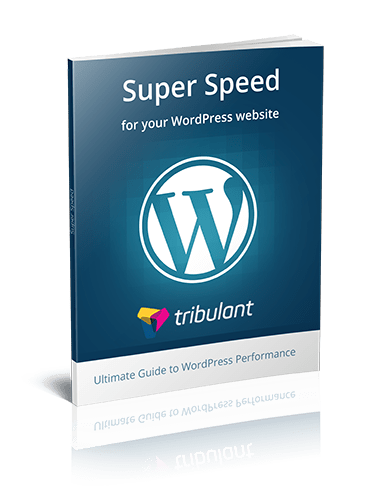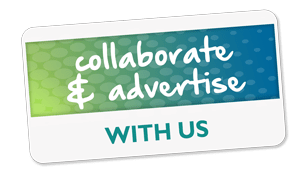
10 questions good developers ask in job interviews

The wonderful world of software development. Typically, you learn much more in the first 6 months of working as a professional programmer than in most of the time you’re in college or vocational training. The same also goes for assistant principal jobs, where you will learn most of the stuff while practising the job rather than from learning theoretically in college. When applying for a job, keep in mind that many companies use coding interview tools to asses your skillset. The following interview explains it in more details on everything that you need to know before applying for a job: https://interviewpenguin.com/assistant-principal-interview-questions/.
When you start working you realize those things you learn from the company and from your colleagues that you would like to have known BEFORE you start sending CVs and being called for job interviews in programming companies.
I think there are a number of things that we are not taught before we start working that we should know and that’s why I’m going to share here the 10 questions that good developers ask in job interviews, according to my point of view. If you have any more, you can add them in the comments section below.
- What software tools are used in the company?
This question is a must. It seems obvious, but sometimes with the nerves of being evaluated we forget the obvious. The employer is eager for you to ask this question, it denotes interest and curiosity about the position. It’s not only about asking what development environment you are going to work with, but it’s a good time to talk about other frameworks used in the company and other technologies even if they are not the ones you are going to work with.
It’s good if you say that while you study you don’t usually work with profit-oriented tools, or that you don’t emphasize on testing tools of the programs you develop, for example, and talk about this kind of testing frameworks and productivity-oriented development platforms.
All these things are good to talk about in job interviews to access a programmer’s position: What development environment do you use? What kind of version control software do you use? Besides the technologies I already master, would it be interesting for the position to learn others in particular?
- Do you work with any kind of standard/code style manual?
What are the major bans in relation to the style of the code? Do you follow any kind of standard or style manual that I should know? With this question you are anticipating specific aspects of day-to-day work in the job, which always pleases the interviewers.
If they don’t follow a specific standard, it doesn’t mean that the company doesn’t know what it’s doing, but it may be that when reading the code of your colleagues, everything is spaghetti code, making the job difficult.
It is a question that reflects an orderly, structured mind that seeks systematization, all characteristics of a good programmer.
- What database technologies does the company work with?
In what ways is the information stored in the company? What databases do the developers work with? Is it a closed database specialized according to the application being developed or are they open databases? For example, do you have to use standard database technologies dictated by the company such as SQL Server or MySQL to get things done, or can I use MongoDB or any other technology that is at the programmer’s discretion?
This question is interesting because it can show that you are a flexible person who is not afraid to adopt the company’s criteria or to have at a given moment to impose its criteria if it were the case.
- What operating systems are used in the company?
This is another common question that should be clear before the interview, but it is always good to ask. It is not superfluous to talk about things like multi-platform systems and mobility. It can also be a good geek moment to explain why you prefer to work with one operating system over another, giving technical arguments. It’s
Presumably most companies use a range of operating systems and make software for the most popular ones: Linux, Windows, Mac, iOS and Android.
- Is the programming team AGILE or do they follow a cascade methodology?
What development methodology does the company follow? Are they an agile team? Do they work in cascade? How strict are they in following the methodology?
It may be the case that different teams within the same company use different methodologies. This type of question anticipates how you will work and how the rest of the programming teams within the company work.
- How much independence of criteria do programmers have when making decisions?
Do they follow the customer’s requirements in the software or do they give the developers a little freedom to do things the way they think the customers will do better?
Do developers have the opportunity to create tools and systems at their discretion on a day-to-day basis to help the team they work for without having to create a formal project? Some companies encourage programmers to take charge and do things on their own initiative while in other company cultures they are simply there to execute what they are told to do.
- Are there any restrictions on using any tools or software?
Is there any software that the company has vetoed? The reasons behind this type of decision are usually for commercial reasons incompatible with the company, for strange licenses, etc… Also many companies veto some open source software that do not guarantee a professional support and a clear future evolution since it is useless to bet on a programming tool that can disappear.
After the interview and if you are hired, it is probably not a good idea to install and use a software that has not been approved by the company, unless they give you free rein to do so.
- Do you do telework?
What kind of working conditions are there in the company when working remotely? This can be a great benefit for you as an employee: the possibility of working from home. If the company allows you to telework, it is important to establish the conditions and expectations of these remote working conditions.

- Do you do code reviews within the programming team? What are they like?
Buff! Code reviews, that task that can make you look like a genius or leave you on a step below the one you thought you were.
Do the company and the department do code reviews on a regular basis? How are they done? Is it just to get out the bugs or is it done in a constructive way to learn things you need to improve on for the future?
Usually code review sessions are part of a personal improvement plan where your superior or colleagues comment on areas for improvement, but you also hear a lot of horror stories… It’s good to ask and know what you’re getting into.
- What is the team I am going to work with like? What kind of experience do they have?
How experienced are the members of my future team? What kind of experience and what kind of code are they used to working with? What are the weaknesses of my future team and how can they improve? What can I contribute to that improvement process?
All these things are good to know when you join a new team – who will you ask for help when you need it?
Other considerations
Of course there are many other important questions you might want to ask in a job interview for the developer position, but these 10 questions will quickly give you an idea of what the company is looking for in its programming team.
These are the things you should try to know before you start working. After the first interview and once you start working, there’s no going back, at least for a while, so it’s best to try to know these things beforehand. Can you think of any other questions? Feel free to post it in the comments section. Thank you!
Website & Email Hosting
Get the best website & email hosting for speed, security, and peace of mind. No restrictions. Freedom to do what you need in order to run your business.



No comments yet